Factors Influencing Business Environment and Operations Management
VerifiedAdded on 2020/10/23
|6
|723
|211
Report
AI Summary
This report examines the multifaceted impact of business environment factors on operational management and decision-making processes. It differentiates between internal factors, such as the value system, organizational structure, and human resources, and external factors including legal and technological influences. The report highlights how these factors affect the strategic decisions of leaders and managers, with specific examples from Google's operational strategies. The analysis emphasizes the significance of ethical considerations, adapting to technological advancements, and complying with legal frameworks to ensure business success and growth. The report concludes by underscoring the importance of understanding both internal and external environments to make informed decisions that optimize organizational performance and achieve business objectives.
1 out of 6

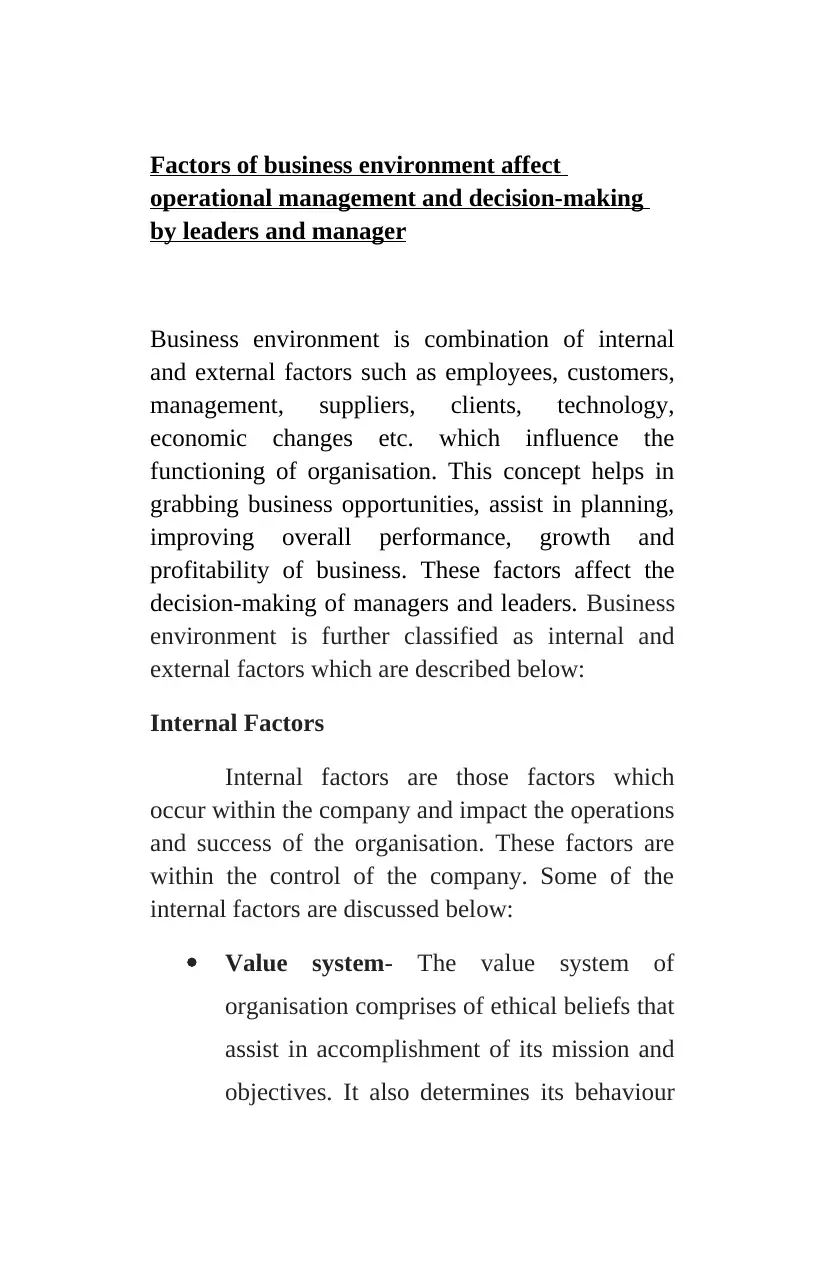
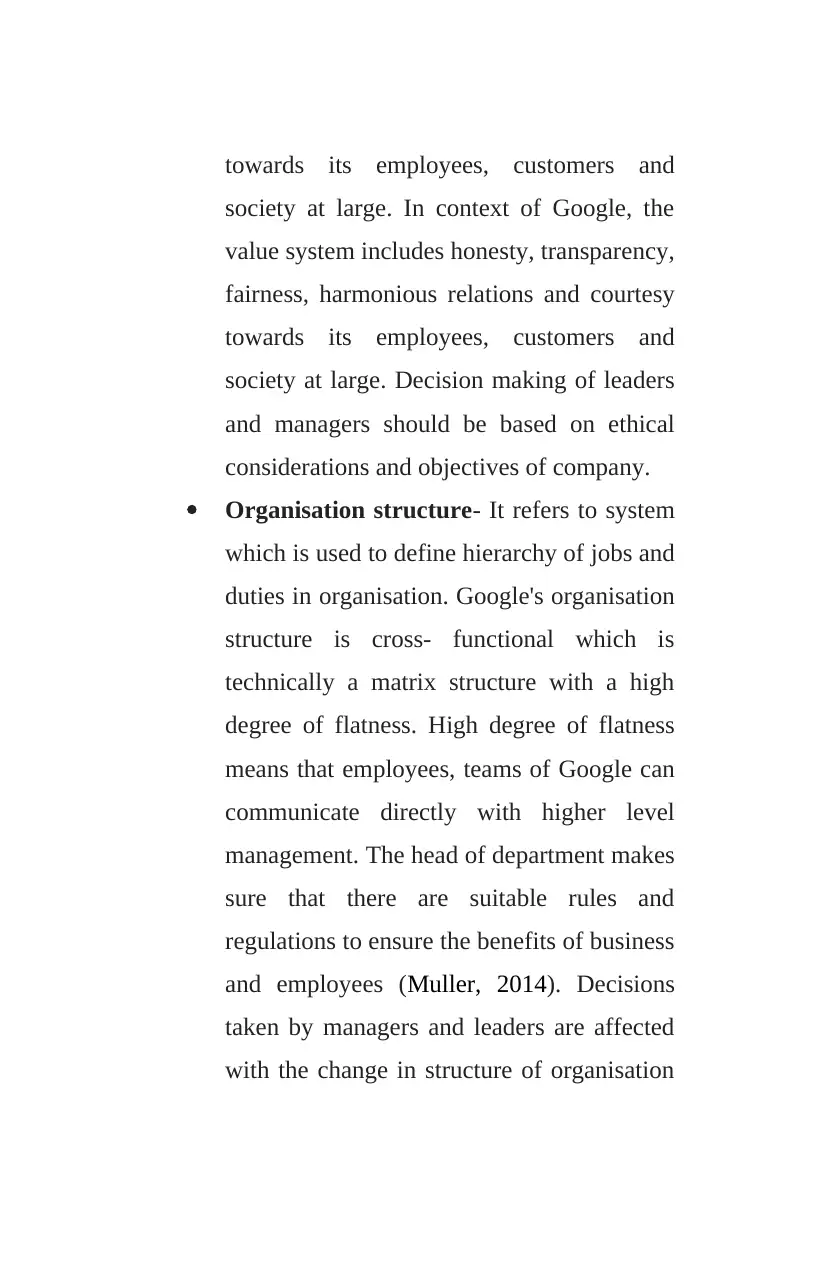

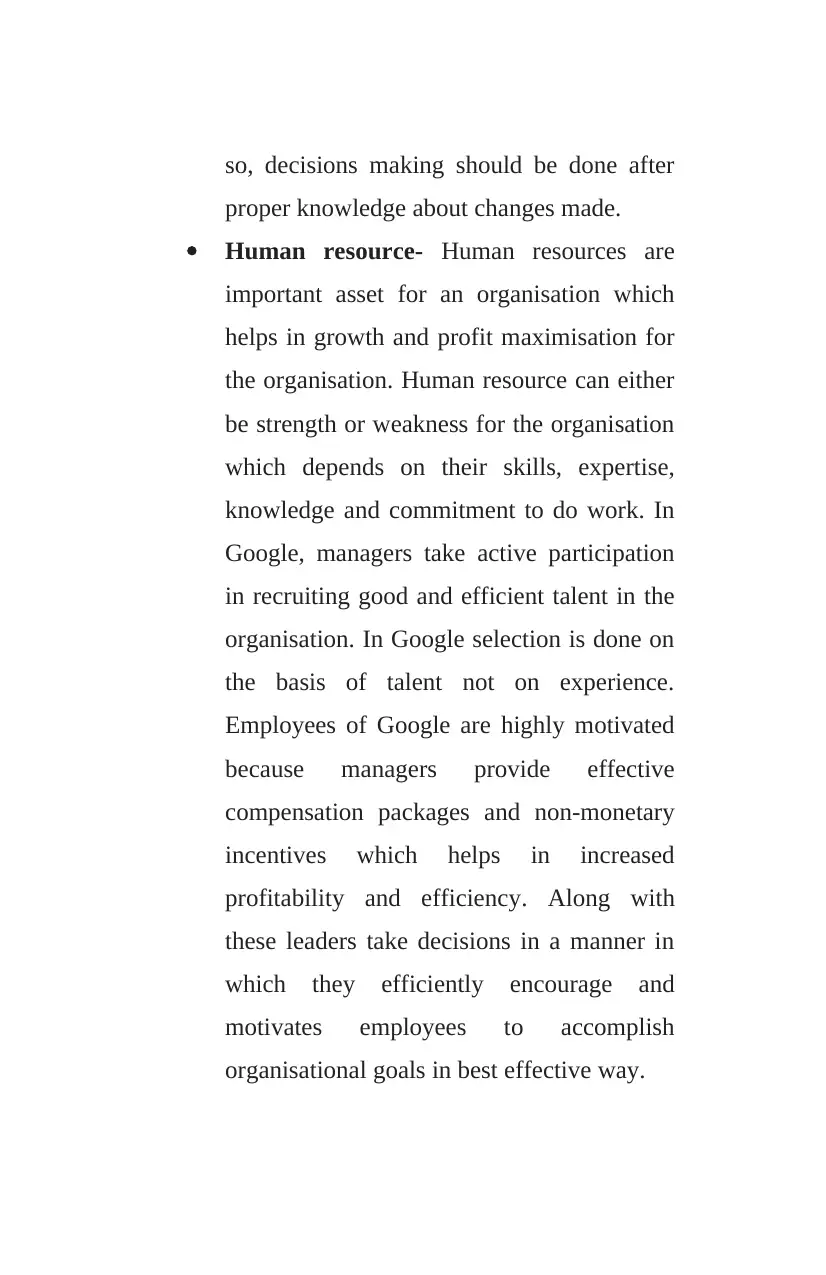
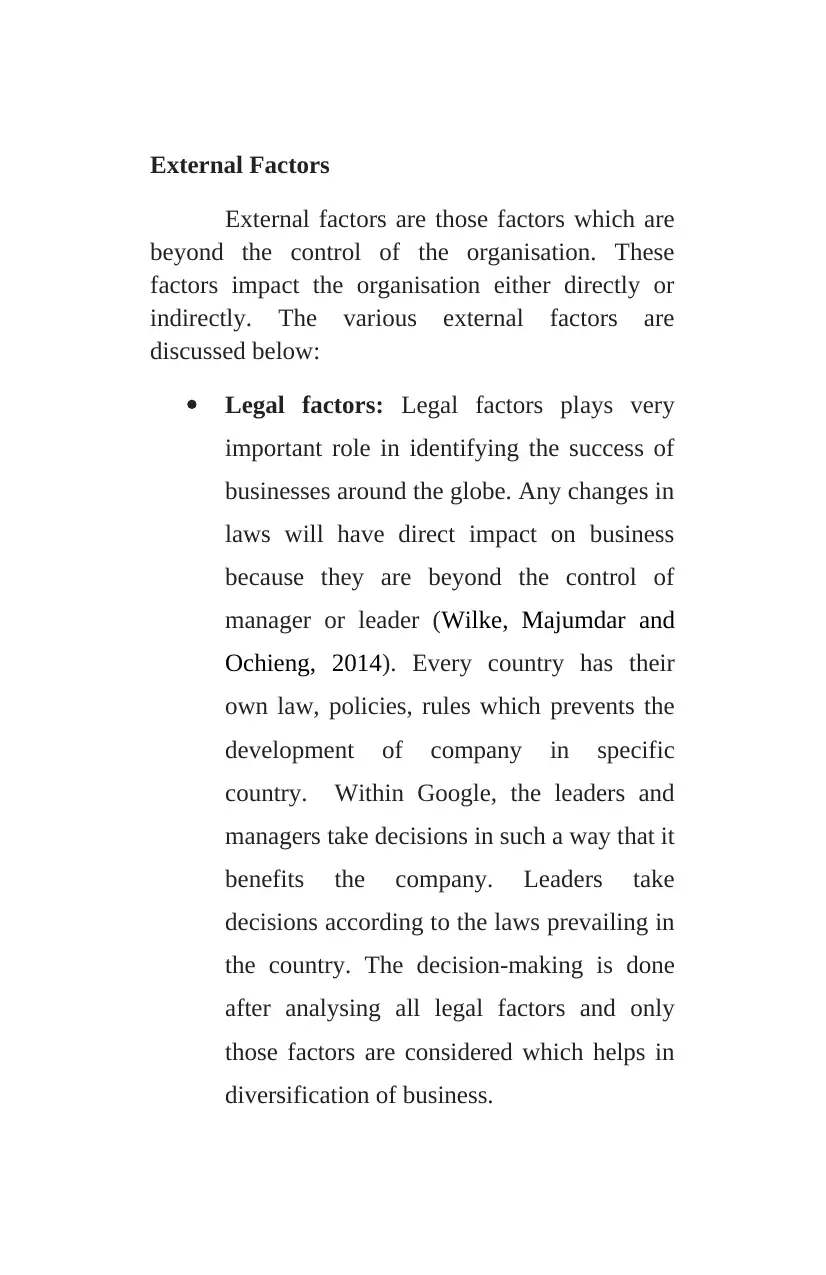
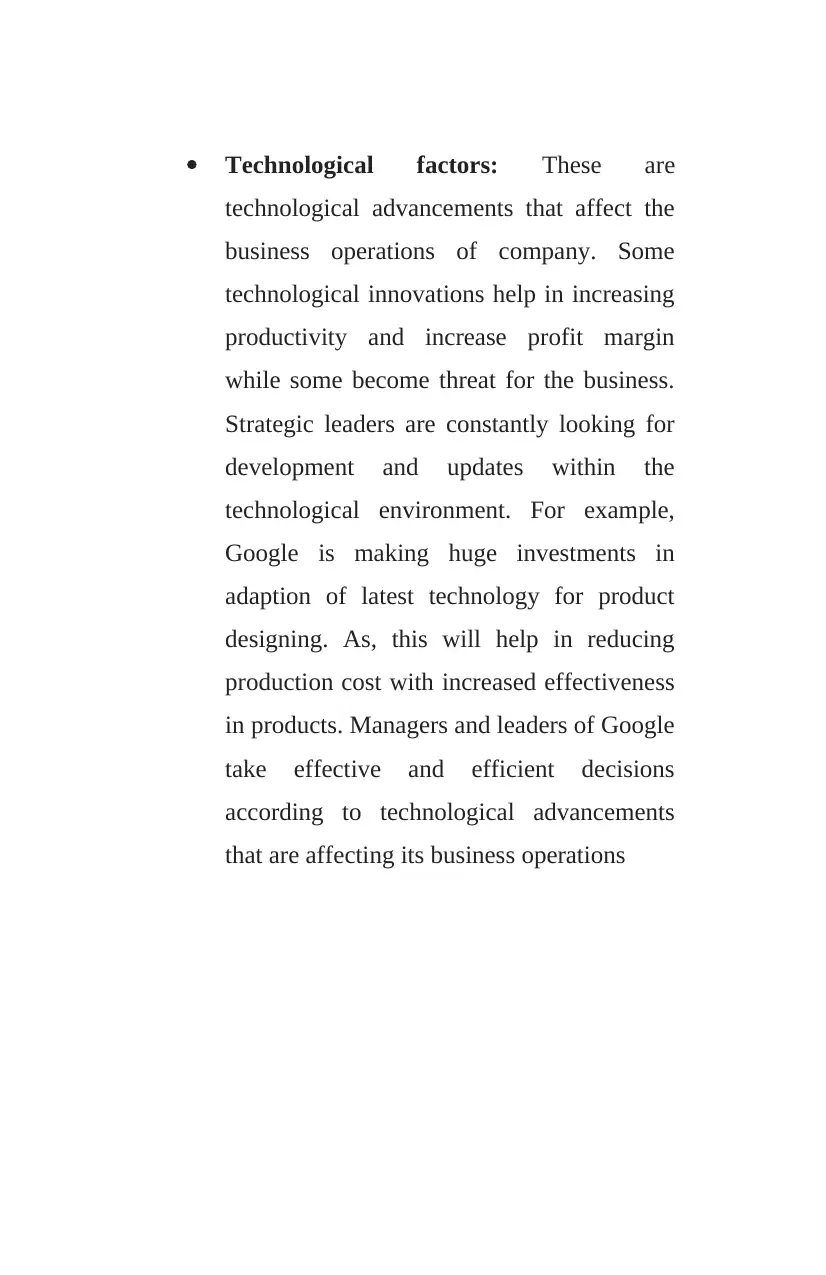



![[object Object]](/_next/static/media/star-bottom.7253800d.svg)